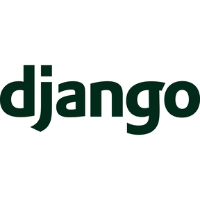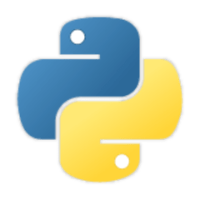🐍
Django環境構築
python setup
私はpyenv + venvで環境を切り分けています。ここは宗教なので深堀はしません。
python -m venv venv
source venv/bin/activate
pip install django
startproject
django-admin startproject config .
フォルダ構成
├── config
│ ├── __init__.py
│ ├── asgi.py
│ ├── settings.py
│ ├── urls.py
│ └── wsgi.py
└── manage.py
settingsファイルをstateによって切り替えられるように
フォルダ構成
├── config
│ ├── __init__.py
│ ├── asgi.py
│ ├── settings
│ │ ├── __init__.py
│ │ ├── base.py
│ │ ├── local.py
│ │ ├── production.py
│ │ └── staging.py
│ ├── urls.py
│ └── wsgi.py
└── manage.py
base.py
"""
Django settings for config project.
Generated by 'django-admin startproject' using Django 3.2.7.
For more information on this file, see
https://docs.djangoproject.com/en/3.2/topics/settings/
For the full list of settings and their values, see
https://docs.djangoproject.com/en/3.2/ref/settings/
"""
import os # changed
from pathlib import Path
# Build paths inside the project like this: BASE_DIR / 'subdir'.
BASE_DIR = Path(__file__).resolve().parent.parent.parent # changed
# Quick-start development settings - unsuitable for production
# See https://docs.djangoproject.com/en/3.2/howto/deployment/checklist/
# SECURITY WARNING: keep the secret key used in production secret!
SECRET_KEY = os.environ.get('SECRET_KEY') # SECRET_KEYを環境変数として設定します
# SECURITY WARNING: don't run with debug turned on in production!
DEBUG = False # changed
ALLOWED_HOSTS = []
# Application definition
INSTALLED_APPS = [
'django.contrib.admin',
'django.contrib.auth',
'django.contrib.contenttypes',
'django.contrib.sessions',
'django.contrib.messages',
'django.contrib.staticfiles',
]
MIDDLEWARE = [
'django.middleware.security.SecurityMiddleware',
'django.contrib.sessions.middleware.SessionMiddleware',
'django.middleware.common.CommonMiddleware',
'django.middleware.csrf.CsrfViewMiddleware',
'django.contrib.auth.middleware.AuthenticationMiddleware',
'django.contrib.messages.middleware.MessageMiddleware',
'django.middleware.clickjacking.XFrameOptionsMiddleware',
]
ROOT_URLCONF = 'config.urls'
TEMPLATES = [
{
'BACKEND': 'django.template.backends.django.DjangoTemplates',
'DIRS': [],
'APP_DIRS': True,
'OPTIONS': {
'context_processors': [
'django.template.context_processors.debug',
'django.template.context_processors.request',
'django.contrib.auth.context_processors.auth',
'django.contrib.messages.context_processors.messages',
],
},
},
]
WSGI_APPLICATION = 'config.wsgi.application'
# Password validation
# https://docs.djangoproject.com/en/3.2/ref/settings/#auth-password-validators
AUTH_PASSWORD_VALIDATORS = [
{
'NAME': 'django.contrib.auth.password_validation.UserAttributeSimilarityValidator',
},
{
'NAME': 'django.contrib.auth.password_validation.MinimumLengthValidator',
},
{
'NAME': 'django.contrib.auth.password_validation.CommonPasswordValidator',
},
{
'NAME': 'django.contrib.auth.password_validation.NumericPasswordValidator',
},
]
# Database
# deleted (別のファイルで設定します)
# Internationalization
# https://docs.djangoproject.com/en/3.2/topics/i18n/
LANGUAGE_CODE = 'ja' #changed
TIME_ZONE = 'Asia/Tokyo' # changed
USE_I18N = True
USE_L10N = True
USE_TZ = True
# Static files (CSS, JavaScript, Images)
# https://docs.djangoproject.com/en/3.2/howto/static-files/
STATIC_URL = '/static/'
# Default primary key field type
# https://docs.djangoproject.com/en/3.2/ref/settings/#default-auto-field
DEFAULT_AUTO_FIELD = 'django.db.models.BigAutoField'
local.py
import os
from .base import *
DEBUG = True
ALLOWED_HOSTS = ["*"]
DATABASES = {
'default': {
'ENGINE': os.environ.get("DB_ENGINE", "django.db.backends.sqlite3"),
"NAME": os.environ.get("DB_NAME", os.path.join(BASE_DIR, "db.sqlite3")),
"USER": os.environ.get("DB_USER", "user"),
"PASSWORD": os.environ.get("DB_PASSWORD", "password"),
"HOST": os.environ.get("DB_HOST", "localhost"),
"PORT": os.environ.get("DB_PORT", "5432"),
}
}
STATIC_URL = '/static/'
STATIC_ROOT = os.path.join(BASE_DIR, 'static/')
production.py, staging.pyはlocal.pyを参考に作成し、DEBUG, ALLOWED_HOSTSをお好みで変更します。
wsgi.py
"""
WSGI config for config project.
It exposes the WSGI callable as a module-level variable named ``application``.
For more information on this file, see
https://docs.djangoproject.com/en/3.2/howto/deployment/wsgi/
"""
import os
from django.core.wsgi import get_wsgi_application
# os.environ.setdefault('DJANGO_SETTINGS_MODULE', 'config.settings')
envstate = os.environ.get('ENV_STATE')
if envstate == 'production':
# settings/production.py
os.environ.setdefault('DJANGO_SETTINGS_MODULE',
'config.settings.production')
elif envstate == 'staging':
# settings/staging.py
os.environ.setdefault('DJANGO_SETTINGS_MODULE', 'config.settings.staging')
else:
# settings/local.py
os.environ.setdefault('DJANGO_SETTINGS_MODULE', 'config.settings.local')
application = get_wsgi_application()
manage.py
#!/usr/bin/env python
"""Django's command-line utility for administrative tasks."""
import os
import sys
def main():
"""Run administrative tasks."""
# os.environ.setdefault('DJANGO_SETTINGS_MODULE', 'config.settings')
envstate = os.environ.get("ENV_STATE", "local")
if envstate == "production":
# settings/production.py
os.environ.setdefault("DJANGO_SETTINGS_MODULE", "config.settings.production")
elif envstate == "staging":
# settings/staging.py
os.environ.setdefault("DJANGO_SETTINGS_MODULE", "config.settings.staging")
else:
# settings/local.py
os.environ.setdefault("DJANGO_SETTINGS_MODULE", "config.settings.local")
try:
from django.core.management import execute_from_command_line
except ImportError as exc:
raise ImportError(
"Couldn't import Django. Are you sure it's installed and "
"available on your PYTHONPATH environment variable? Did you "
"forget to activate a virtual environment?"
) from exc
execute_from_command_line(sys.argv)
if __name__ == "__main__":
main()
ENV_STATEを環境変数として設定します。
(commitします。migrateはauth user modelの作成が終わるまではしないでください。)
Dockerにのせる
auth user modelの作成
migrateする前に自分でauth user modelを作成する必要があります。あとからの変更はほぼできません。
django-admin startapp account
account/models.py
from django.db import models
from django.contrib.auth.models import BaseUserManager, AbstractBaseUser, PermissionsMixin
import uuid
from django.utils.translation import gettext_lazy as _
from django.utils import timezone
class UserManager(BaseUserManager):
use_in_migrations = True
def create_user(self, email, username, uid):
if not uid:
raise ValueError("The given uid must be set")
if not email:
raise ValueError("The given email must be set")
if not username:
raise ValueError("The given username must be set")
user = self.model(email=email, username=username, uid=uid)
user.save(using=self._db)
return user
def create_superuser(self, email, password):
user = self.model(email=email)
user.is_admin = True
user.is_superuser = True
user.is_staff = True
user.set_password(password)
user.save(using=self._db)
return user
class User(AbstractBaseUser, PermissionsMixin):
uuid = models.UUIDField(default=uuid.uuid4, editable=False, unique=True, primary_key=True)
# user info
email = models.EmailField(_("email address"), unique=True)
username = models.CharField(
_("username"),
max_length=250,
blank=True,
)
firebase_uid = models.CharField(max_length=36, blank=True)
is_active = models.BooleanField(default=True)
is_admin = models.BooleanField(default=False)
is_superuser = models.BooleanField(default=False)
is_staff = models.BooleanField(
_("staff status"),
default=False,
help_text=_("Designates whether the user can log into this admin site."),
)
date_joined = models.DateTimeField(_("date joined"), default=timezone.now)
objects = UserManager()
USERNAME_FIELD = "username"
EMAIL_FIELD = "email"
REQUIRED_FIELDS = ["email"]
def __str__(self):
return self.username
class Meta:
verbose_name = _("user")
verbose_name_plural = _("users")
firebase authを使うことを想定しているため適宜変更してください。



Discussion